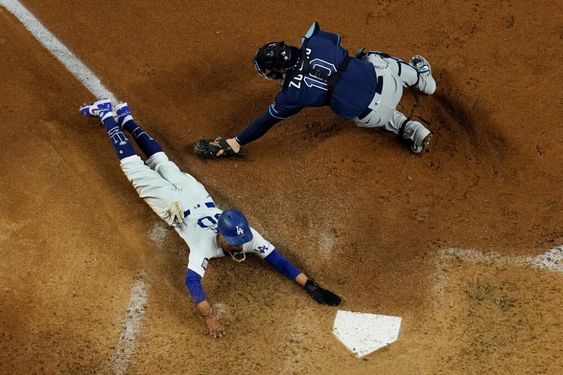How Long is a Baseball Game
A baseball game’s length can vary, but on average, it takes about three hours to complete. There are factors that can influence the duration of a game though:
- Level of play: Major League Baseball (MLB) games tend to be a bit longer than minor league or college games.
- Pitching changes: A lot of pitching substitutions can slow down the game.
- Scoring: High-scoring games with lots of action can take longer than lower-scoring games.
- Extra innings: If the score is tied after nine innings, the game goes into extra innings which can significantly extend the game time.
Some games can be as short as two hours, while others can stretch to four hours or even longer, especially if there are extra innings.
Standard Duration of a Baseball Game
On average, a Major League Baseball (MLB) game lasts about three hours. This can vary depending on several factors, such as the pace of play, number of innings, and any interruptions that may occur. Comparatively, minor league games and college baseball games often run shorter, usually clocking in at around two and a half hours. Read about How Many Innings in a Baseball Game
Factors Influencing Game Length
Number of Innings
A standard baseball game consists of nine innings. However, if the score is tied at the end of the ninth inning, the game can go into extra innings, which can significantly extend the duration.
Pitching Changes
Frequent pitching changes can slow down the game considerably. Each time a new pitcher is brought in, there’s a delay as they warm up and the previous pitcher exits. Discover about How Many Clubs Are Allowed in a Golf Bag

Commercial Breaks
In professional baseball, particularly in the MLB, commercial breaks between innings and during pitching changes add to the overall length of the game.
Weather Conditions
Rain delays can pause the game for an indefinite period, sometimes leading to postponements that require the game to be continued at a later date.
Detailed Breakdown of Game Components
Inning Structure
Each inning is divided into two halves: the top half and the bottom half. The visiting team bats in the top half, and the home team bats in the bottom half.
Batting and Pitching
The dynamics of batting and pitching play a significant role in the pace of the game. A dominant pitcher can make quick work of innings, while a struggling pitcher might face long at-bats and frequent mound visits. Learn about Is Table Tennis 11 or 21
Defensive and Offensive Strategies
Teams employ various strategies that can either speed up or slow down the game. Aggressive base-running or defensive shifts can lead to quicker innings, while more conservative play can drag things out.
Special Game Situations
Extra Innings
When a game is tied at the end of nine innings, it goes into extra innings. These can last indefinitely until one team outscores the other in a completed inning, potentially making for some marathon games.
Rain Delays and Postponements
Rain can bring a game to a halt, sometimes for hours. If conditions don’t improve, the game might be postponed, affecting the overall schedule and duration.
Doubleheaders
In a doubleheader, two games are played back-to-back. These games are often shorter, particularly if they are scheduled as seven-inning games rather than the standard nine.
Efforts to Shorten Game Length
Rule Changes by MLB
Over the years, MLB has introduced several rule changes aimed at shortening game durations. These include limiting mound visits, introducing intentional walk signals, and enforcing stricter time limits between pitches.
Introduction of Pitch Clocks
One of the most significant changes has been the introduction of the pitch clock, which limits the time a pitcher has to throw the next pitch. This has helped to reduce game times by keeping the action moving.
Impact on Game Duration
These efforts have seen varying degrees of success, with some seasons showing a noticeable reduction in average game lengths.
Comparison with Other Sports
Baseball vs. Football
Football games, including those in the NFL, typically last about three hours, similar to baseball. However, the playtime in football is more strictly regulated, contributing to a more predictable duration.
Baseball vs. Basketball
Basketball games, with their four quarters and shorter total playtime, usually last around two to two and a half hours, making them quicker compared to baseball.
Baseball vs. Soccer
Soccer games are typically 90 minutes long, with a 15-minute halftime break, making them one of the shortest major sports events in terms of duration.
Historical Changes in Game Length
Evolution Over the Decades
Baseball game durations have evolved significantly. In the early 20th century, games often lasted under two hours. As the sport has modernized, games have generally gotten longer due to increased offensive strategies and commercial breaks.
Influence of Technology and Media
Television and media coverage have also played a role in lengthening games, with commercial breaks and instant replays adding time.
Impact of Game Length on Fans
Viewer Experience
The length of a baseball game can impact the viewer experience. While some fans enjoy the leisurely pace, others may find it difficult to stay engaged for three or more hours.
Attendance and Fan Engagement
Longer games can also affect attendance, particularly for families with young children or individuals with time constraints.
Case Studies of Notable Games
Longest Games in History
One of the longest games in MLB history was a 25-inning marathon between the Chicago White Sox and the Milwaukee Brewers in 1984, which lasted over eight hours.
Shortest Games in History
Conversely, one of the shortest recorded games was played in 1919 between the New York Giants and the Philadelphia Phillies, lasting just 51 minutes.
The Role of Broadcast and Media
Influence on Game Scheduling
Broadcast agreements and media coverage play a significant role in game scheduling, often dictating start times and commercial break lengths.
Commercial Breaks and Their Effect
These breaks, while necessary for advertising revenue, contribute to longer game durations, particularly in televised games.
The Future of Baseball Game Duration
Predicted Trends
Looking forward, the trend appears to be towards shorter games, with ongoing rule changes and technological advancements aimed at speeding up play.
Potential Future Rule Changes
Future rule changes may further reduce game times, with discussions ongoing about limiting defensive shifts and further regulating the time between pitches.

Personal Experiences and Anecdotes
Fan Stories
Many fans have memorable stories about attending particularly long or short games, reflecting on the unique experiences these games provide.
Player Perspectives
Players also have varied perspectives on game length, with some appreciating the strategic depth of longer games and others favoring a quicker pace.
Conclusion
The length of a baseball game varies significantly based on the level of play and specific circumstances of the game. Major League Baseball games typically last around 3 hours, while games at other levels, such as minor league, college, high school, and youth leagues, have slightly shorter average durations. Various factors, including extra innings, pitching changes, and game delays, can impact the overall game length.
FAQs
What is the average length of a Major League Baseball game?
The average length of a Major League Baseball (MLB) game is about 3 hours.
How long do minor league baseball games usually last?
Minor league baseball games typically last around 2.5 to 3 hours, similar to MLB games.
Why do some baseball games last longer than others?
Factors such as extra innings, numerous pitching changes, instant replay reviews, and weather delays can extend the length of a baseball game.
How long is a high school baseball game?
High school baseball games generally last about 2 to 2.5 hours.
Are youth baseball games shorter than professional games?
Yes, youth baseball games, such as those in Little League, are typically shorter, lasting about 1.5 to 2 hours.

Welcome to TheGeneralFeed.ca, where Lucas brings a fresh perspective to the world of news and information!
Lucas is a dynamic writer who is passionate about delivering compelling content that informs, engages, and inspires our readers. With a keen interest in a wide range of topics, including current events, technology, lifestyle, and more, Lucas keeps our audience informed and entertained with his insightful articles.





